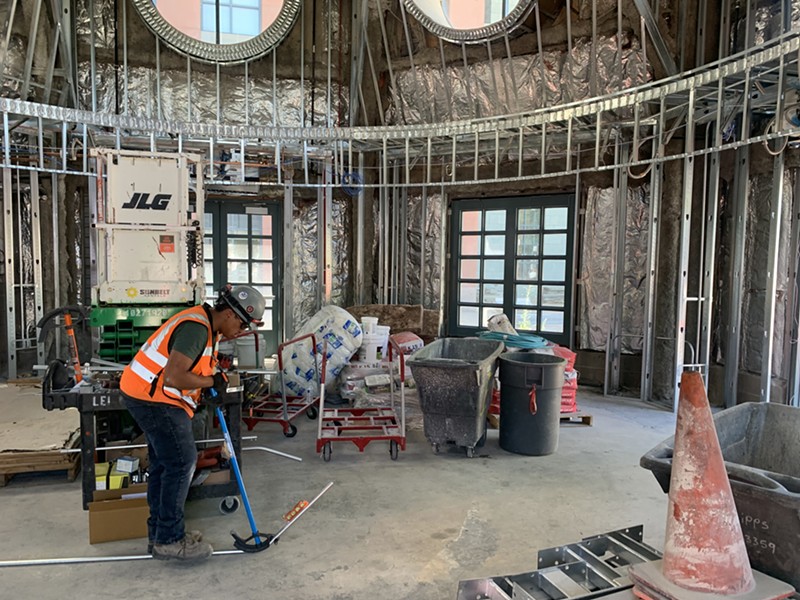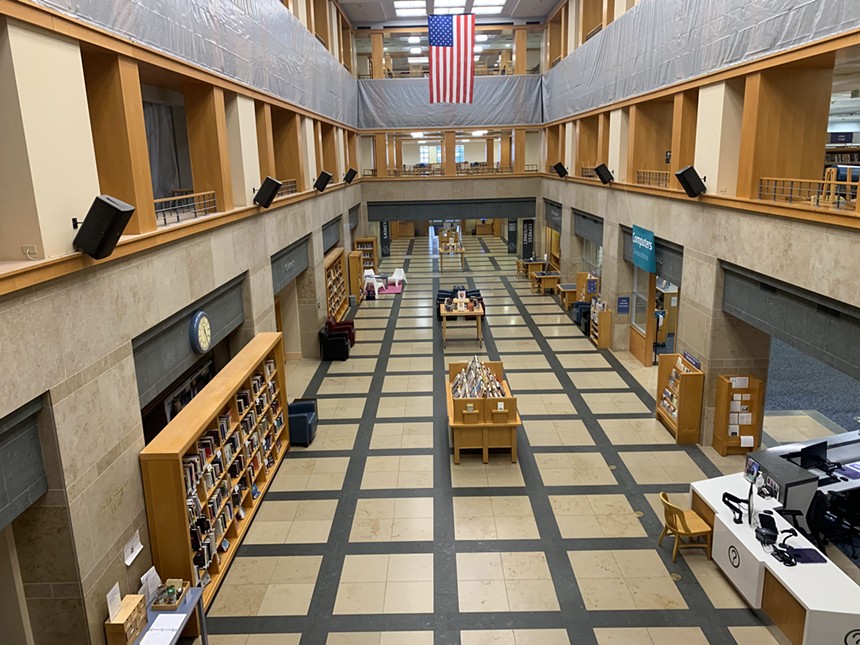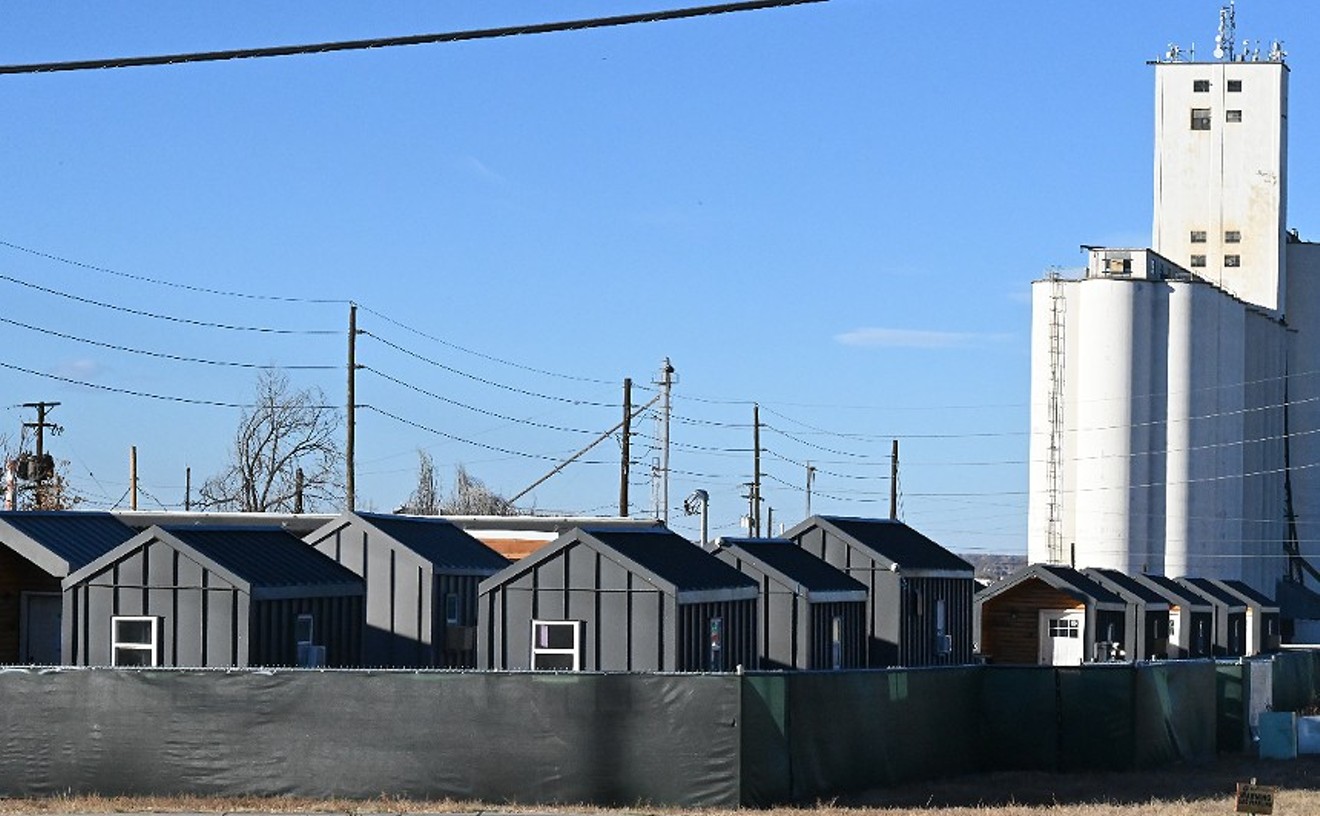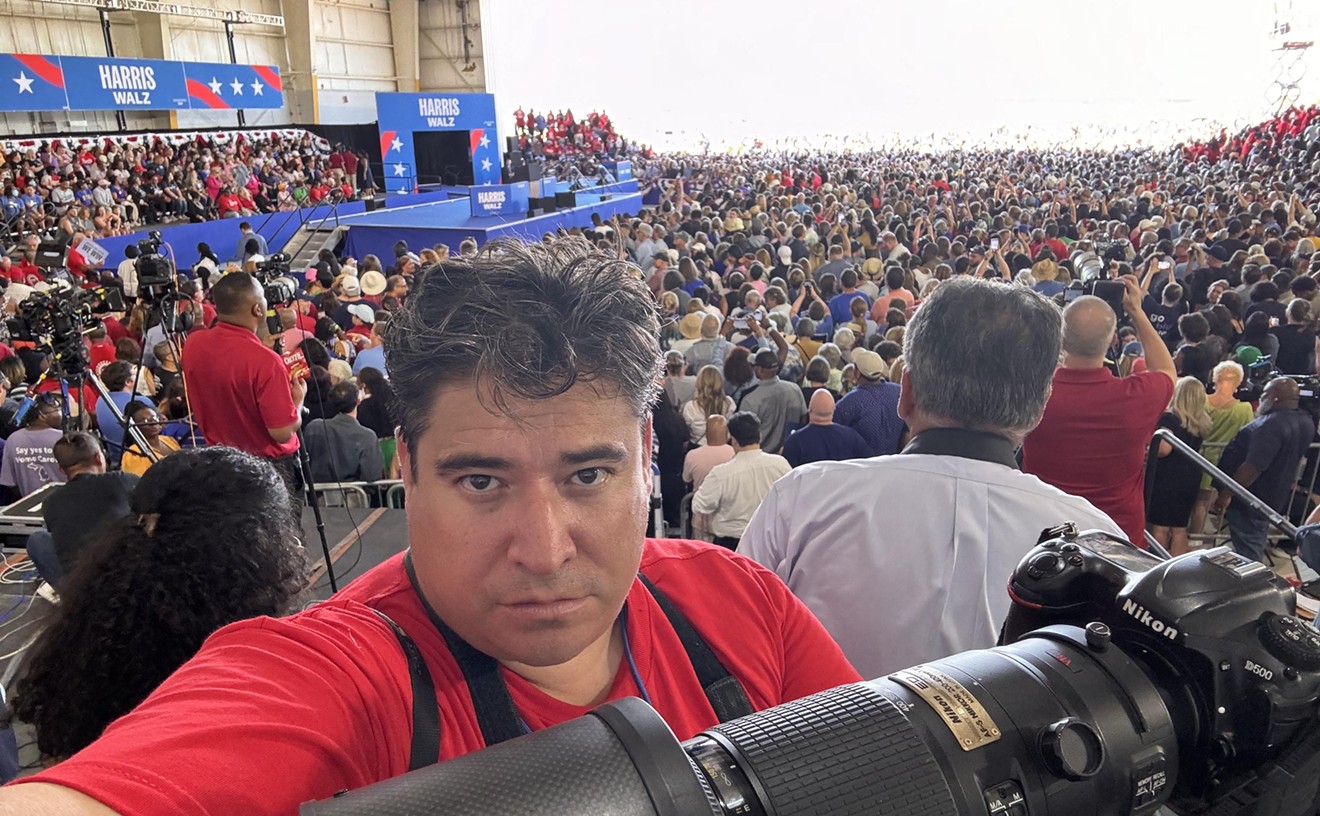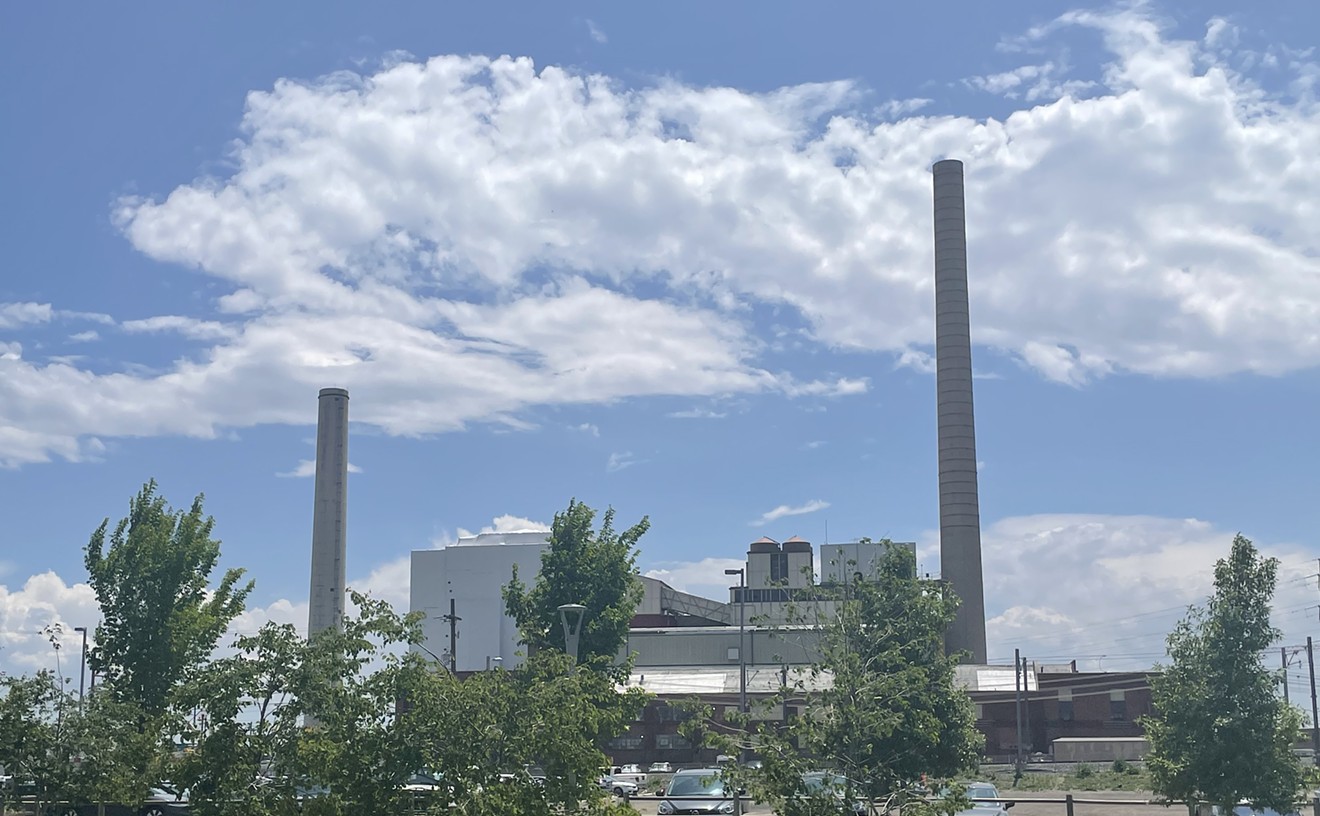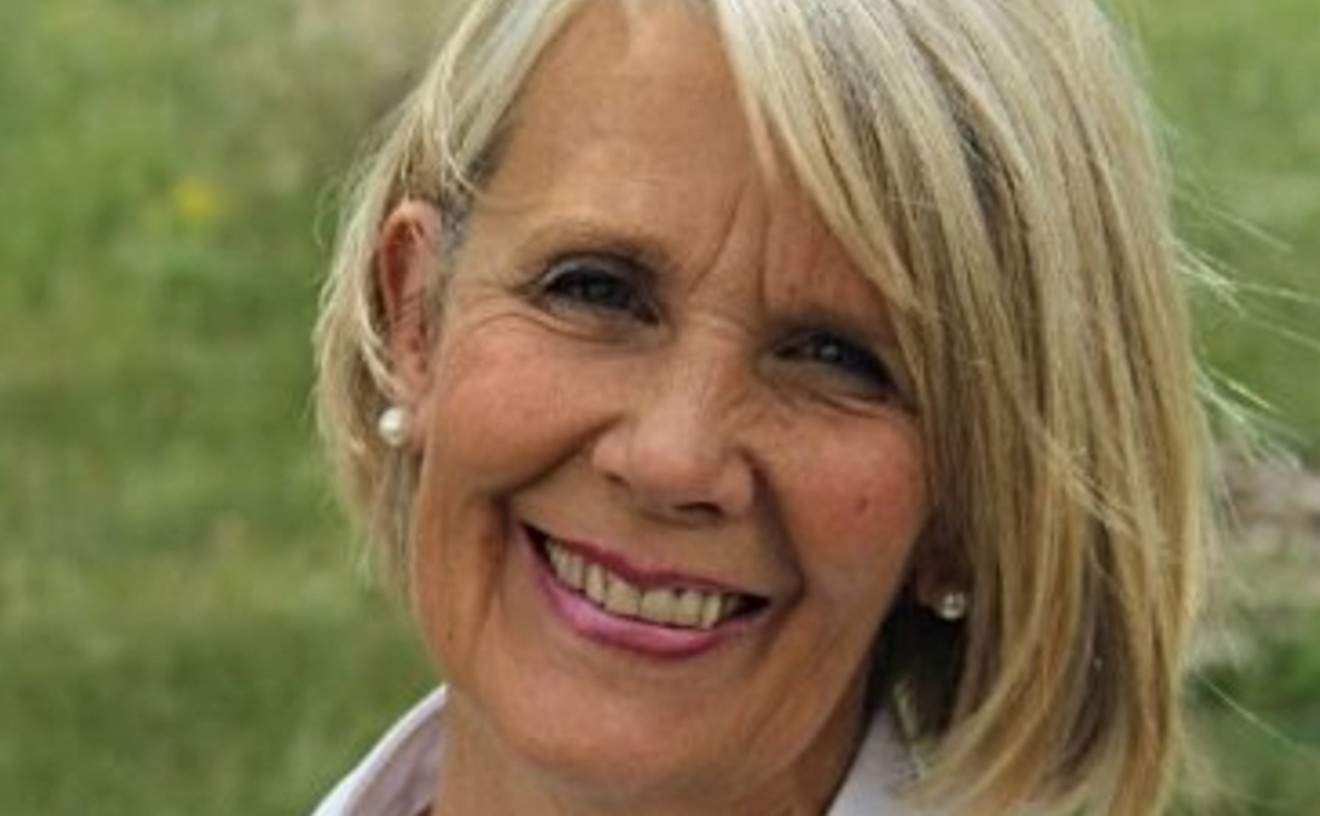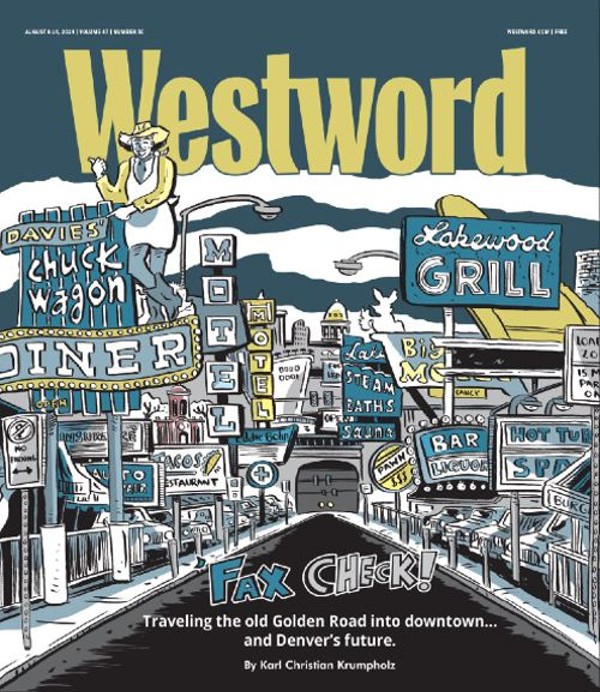In March 2020, the Denver Central Library, at 10 West 14th Avenue, closed to the public because of the COVID-19 pandemic. Library leadership took advantage of the closure to begin some major construction projects that had already been budgeted. Although some of those projects were far enough along to allow much of the first floor to reopen last July, the vast majority of the Central Library remains off limits.
"I get that people keep asking the question, 'Well, if your elevators are done, why can't we just come in and go up to a different floor? We don't have to impact the other floors.' But the way this building is set up, if you open any of it, it's basically all open, so we would have to staff our security team up for the full building, which we have not been able to do," says Rachel Fewell, Central Library administrator. But while she notes that the closure beyond the first floor is partially a hiring issue, it's also helping facilitate the ongoing construction projects.
The Central Library has a total of 500,000 square feet, and only 9,000 square feet are currently open to the public. Kids can access the brand-new Children's Library, which opened in April, and pick up books and other materials on the first floor; they can also request rare books and documents from the Western History Collection. But most of the library will remain inaccessible until early 2024, predicts Fewell.
When people are finally allowed to roam through the rest, they'll notice some major changes. One of the most significant: The former event space that Fewell calls "a crusty basement thing" will be replaced by a larger space on the first floor, named Park View, which will rise two stories and have the capacity for 400 people seated theater-style or 200 at round tables.
"This will be way more accessible. We can host after- and before-hours programming here, which we had a lot of difficulty doing in the building before," Fewell says.
The escalators are a thing of the past, too; the library is replacing them with stairs and better elevators. "Stairs are quiet. Escalators...escalators are loud," says Fewell.
The library will also have new restrooms (the first-floor facilities have already been replaced) and more meeting and study rooms available for public use.
Some of the furniture will be new, too. The fourth-floor computer area will boast triplex tables with only three computers per unit, separated by barriers, rather than the eight computers that were formerly jammed together on big tables. "That caused a lot of conflict because you're sitting very, very close, right next to somebody," says Fewell. The new triplex tables have already been deployed on the first floor, and "they've been a resounding success," she adds.
Not only is the area above the first floor of the library still inaccessible, but so is the exterior of the library. The grounds have been fenced off for more than two years.
"I feel like there is a lot of confusion about our fence and why it's been up and why it's been up for so long and for so much of the building," Fewell says. "We are doing a massive construction project, and we're using the fence as kind of a yard for our construction storage. We have to keep the fence up until this project is over. ... Believe me, I talk every week about, can we take some of it down? How about we shrink this part?"
Parts of the Central Library date back to the 1950s. In the early ’90s, renowned architect Michael Graves designed a huge renovation and expansion of the original. That project was funded with $91.6 million in bond money. While the building earned national acclaim when it debuted in 1995, changes in the way people use libraries — as well as two decades of wear and tear — inspired the current work.
The entire construction project will end up costing the library over $50 million, according to the latest estimates. Much of that funding comes from Elevate Denver bond money approved by Denver voters in 2017. Voters approved $937 million worth of bond projects then, including $69 million for library projects.
While the library system has largely been reliant on bond funding for major projects, it gets the vast majority of its annual budget — over $45 million this year — from the Denver general fund. But Denver City Librarian Michelle Jeske is now asking Denver City Council to place a question on the November ballot that would increase DPL's funding by $31.6 million annually, through a property tax increase. The library estimates that the increase would cost the average Denver homeowner about $50 a year.
The decision to ask Denver voters for that annual bump came after the DPL formed a 22-person task force to formulate the library's future strategy and held community meetings to discuss possibilities.
"We asked our community what they wanted, we created a plan for how to make the world-class library our community envisioned," says Jeske. "And now we want to ask the voters if they will help fund that plan."

Audio By Carbonatix
[
{
"name": "Air - MediumRectangle - Inline Content - Mobile Display Size",
"component": "12017618",
"insertPoint": "2",
"requiredCountToDisplay": "2",
"watchElement": ".fdn-content-body",
"astAdList": [
{
"adType": "rectangle",
"displayTargets": "mobile"
}
]
},{
"name": "Editor Picks",
"component": "17242653",
"insertPoint": "4",
"requiredCountToDisplay": "1",
"watchElement": ".fdn-content-body",
"astAdList": [
{
"adType": "rectangle",
"displayTargets": "desktop|tablet"
},{
"adType": "rectangle",
"displayTargets": "desktop|tablet|mobile"
}
]
},{
"name": "Inline Links",
"component": "18838239",
"insertPoint": "8th",
"startingPoint": 8,
"requiredCountToDisplay": "7",
"maxInsertions": 25
},{
"name": "Air - MediumRectangle - Combo - Inline Content",
"component": "17261320",
"insertPoint": "8th",
"startingPoint": 8,
"requiredCountToDisplay": "7",
"maxInsertions": 25,
"watchElement": ".fdn-content-body",
"astAdList": [
{
"adType": "rectangle",
"displayTargets": "desktop|tablet"
},{
"adType": "rectangle",
"displayTargets": "desktop|tablet|mobile"
}
]
},{
"name": "Inline Links",
"component": "18838239",
"insertPoint": "8th",
"startingPoint": 12,
"requiredCountToDisplay": "11",
"maxInsertions": 25
},{
"name": "Air - Leaderboard Tower - Combo - Inline Content",
"component": "17261321",
"insertPoint": "8th",
"startingPoint": 12,
"requiredCountToDisplay": "11",
"maxInsertions": 25,
"watchElement": ".fdn-content-body",
"astAdList": [
{
"adType": "leaderboardInlineContent",
"displayTargets": "desktop|tablet"
},{
"adType": "tower",
"displayTargets": "mobile"
}
]
}
]

